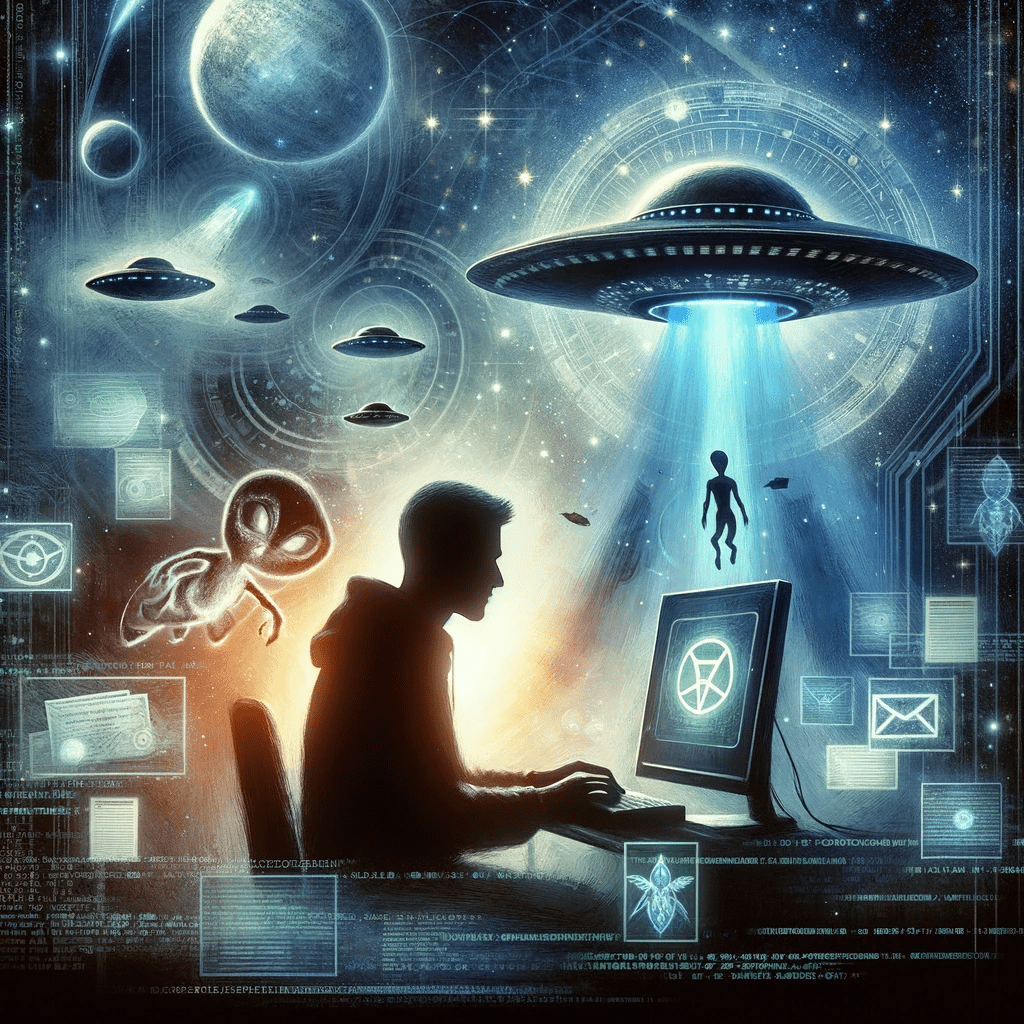Gary McKinnon: Figure in the World of UFOs and Cybersecurity

Gary McKinnon is a Scottish systems administrator and hacker who gained international attention in the early 2000s for perpetrating one of the largest and most audacious cyber-attacks in history. Born on February 10, 1966, in Glasgow, Scotland, McKinnon was raised in a family that nurtured his interest in computers and technology from a young age. Although his educational background is not widely documented, it is known that he attended Highgate Wood Secondary School in North London and later studied computing at North London Polytechnic (now known as London Metropolitan University).
McKinnon’s employment background primarily involved working as a systems administrator for various companies. However, his passion for UFOs and alleged government cover-ups led him to embark on a hacking spree between 2001 and 2002, targeting the computer systems of the United States Department of Defense, NASA, and other US military institutions. His objective was to find evidence of UFOs, free energy technology, and other hidden scientific advancements that he believed were being concealed from the public. McKinnon’s actions resulted in an estimated $700,000 worth of damage to government computer systems, making it one of the most significant cybercrimes of the time.
Discoveries made by McKinnon include the following:
- “The Disclosure Project” – McKinnon claimed to have found evidence of a top-secret project that was allegedly run by the US government to cover up evidence of extraterrestrial life. He stated that he found a list of names and ranks of people involved in this project, along with a brief description of their roles.
- “Solar Warden” – McKinnon believed that he had found evidence of a secret space fleet called “Solar Warden” that was operated by the US Navy and the UK Royal Navy. He claimed that he found a list of officers who were assigned to the fleet, along with a number of images that he believed to be of the fleet’s spaceships.
- “Antigravity technology” – McKinnon also claimed to have found evidence of antigravity technology that he believed was being hidden by the US government. He stated that he found documents related to the development of antigravity propulsion systems, as well as patents for related technologies.
- Extraterrestrial spacecraft – McKinnon claimed to have found evidence of extraterrestrial technology during his hacking activities. In particular, he described coming across a high-resolution image of a cigar-shaped object that he believed to be an extraterrestrial spacecraft.
- Non-terrestrial officers – According to McKinnon, he found an Excel spreadsheet that listed non-terrestrial officers and transfer logs between various ships. He believed that this was evidence of a covert space fleet that was being operated by the US government.
- Non-terrestrial fleet – McKinnon claimed to have found evidence of a number of off-planet vessels that were operated by the US government and various other organizations. According to McKinnon, this fleet was made up of various types of ships, including some that were “cigar-shaped” and others that were more saucer-shaped. He also claimed to have found evidence of a type of energy that was being used to power these ships, which he believed was based on zero-point energy.
Gary McKinnon’s relationship with UFOs and UAP (Unidentified Aerial Phenomena) is deeply rooted in his personal beliefs and passion for unveiling hidden information. He claims to have found evidence of extraterrestrial technology and a secret space program during his hacking activities. In an interview with Wired in 2006, McKinnon described coming across a high-resolution image of a cigar-shaped object that he believed to be an extraterrestrial spacecraft. He also mentioned discovering an Excel spreadsheet that listed non-terrestrial officers and transfer logs between various ships, fueling his belief in the existence of a covert space fleet.
- McKinnon was diagnosed with Asperger’s Syndrome in 2008, which played a significant role in his extradition proceedings. Asperger’s is a neurodevelopmental disorder characterized by difficulties in social interaction and repetitive patterns of behavior (Source: The Guardian, 2009).
- McKinnon faced the possibility of extradition to the United States, where he could have been sentenced to up to 70 years in prison. However, in October 2012, then-UK Home Secretary Theresa May blocked the extradition on human rights grounds, citing concerns about McKinnon’s mental health (Source: BBC News, 2012).
- In 2018, McKinnon launched a crowdfunding campaign to finance his legal defense against charges brought by the UK’s National Crime Agency for alleged cyber-attacks in 2012 and 2013. The campaign raised over £10,000 (approximately $14,000 USD) in support (Source: The Register, 2018).
Gary McKinnon has garnered support from some experts in the fields of cybersecurity and UFO research. British computer scientist and cybersecurity expert Dr. Peter Sommer testified on McKinnon’s behalf during his extradition proceedings, arguing that the charges against him were disproportionate to the crime committed. Additionally, UFO researcher and author Nick Pope has expressed his belief that McKinnon’s hacking activities may have uncovered important information about the US government’s knowledge of UFOs (Source: The Telegraph, 2019).
McKinnon has written a book, “The Gary McKinnon Extradition: Autism, Asperger Syndrome, and Suicide Risk” (2012), which recounts his experiences during the extradition process and highlights the impact of his Asperger’s diagnosis on the case. He is also the subject of several other books, including “Free Gary” by investigative journalist Nicky Hager (2008) and “The Hacker Chronicles: The True Story of Gary McKinnon, the Pentagon and NASA Hacker” by investigative journalist Paul Bernal (2012).
Gary McKinnon is a controversial figure who gained notoriety for his cyber-attacks on US government systems and his alleged discoveries related to UFOs and extraterrestrial technology. While his actions were illegal and resulted in significant damage to government computer systems, McKinnon has also raised important questions about government transparency and the existence of hidden scientific advancements.

